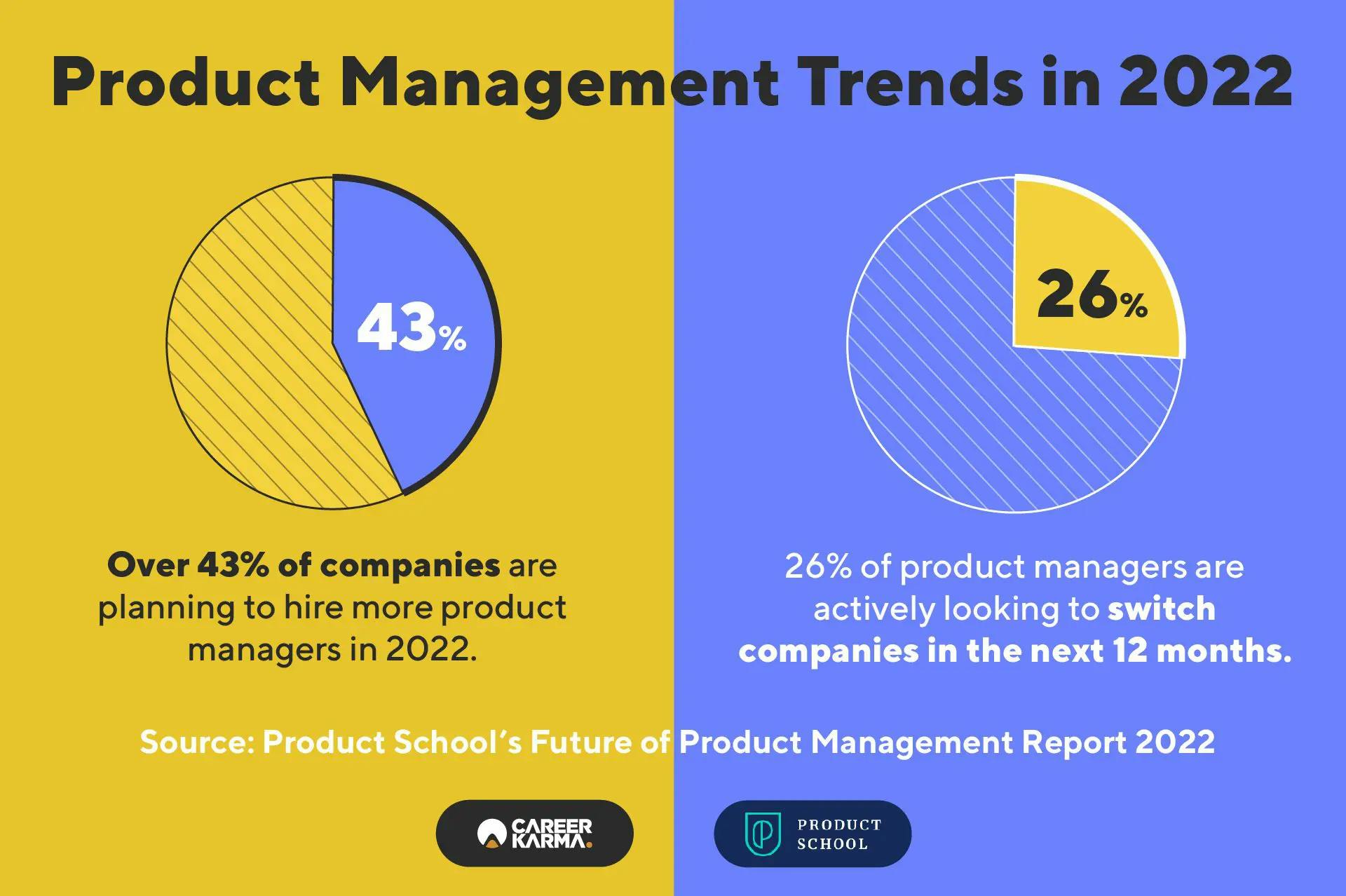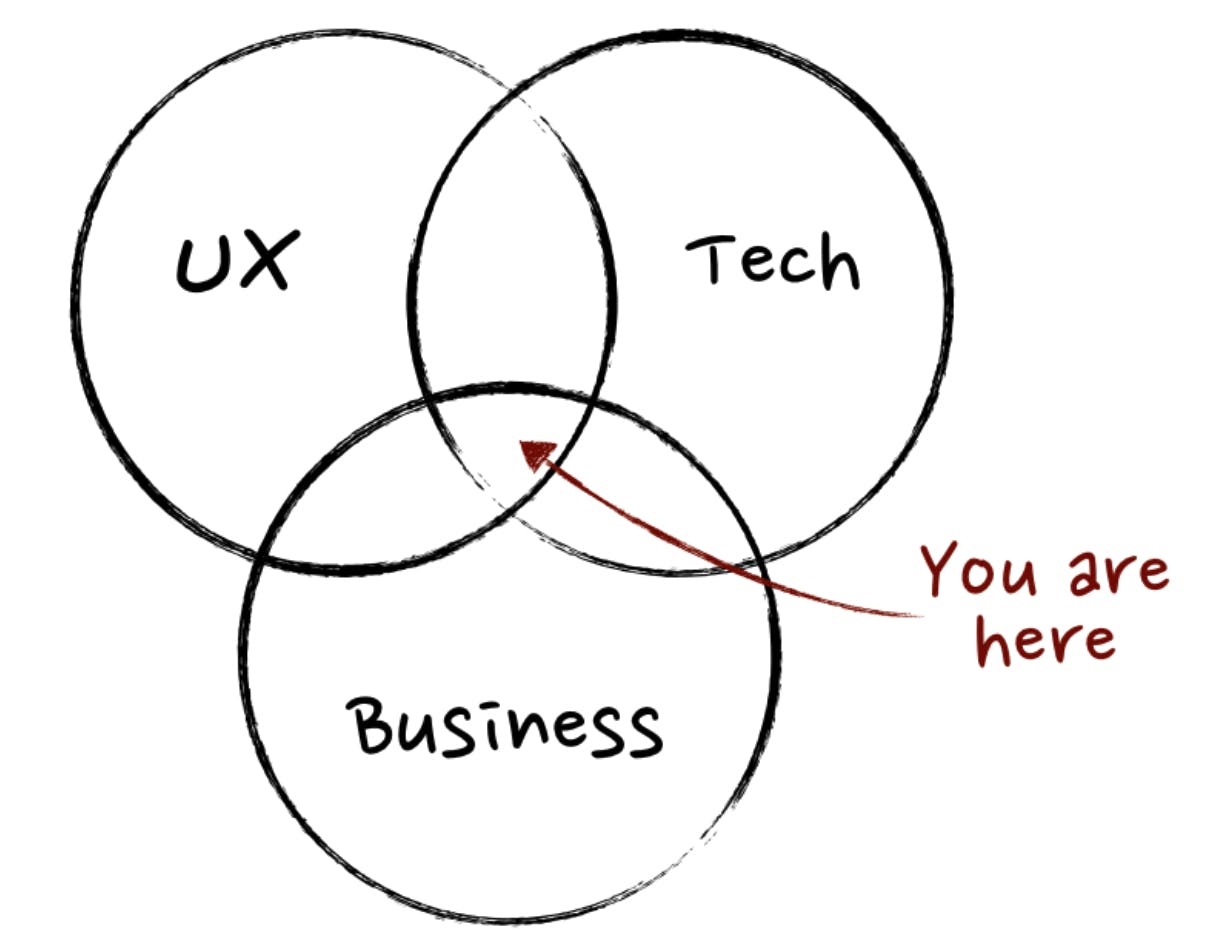How to Become a Product Manager After Undergrad?
Pathway To Product Managment
Product management is a highly sought-after and fast-growing career in the tech world(so much hype 🔥).
The demand for product managers is expected to grow by 20% in the next few years, making this one of the hottest jobs right now(hottest meaning more 💰💰). However, it’s not easy to transition from an undergrad program into a challenging and competitive career like product management- trust me, your’s truly found out the HARD way.
With this blog post, I will walk you through some of the key considerations you need to make when transitioning into product management. These learnings are gathered from my 3 years of experience in the PM career, and these tips will help you break into this field after college as well as inspire ideas on how you can make that happen sooner rather than later.

The image is taken from the article linked here.
So what is this super-hyped career called Product Management**?**
Trust me, it isn’t easy🥹.
Product Management is managing the entire lifecycle of a product. The end-to-end product lifecycle is comprised of 3 stages:
Creating a Product strategy - Defining the product
Product management - Managing the product lifecycle, from prioritizing features to helping with a go-to-market strategy.
Product marketing - Marketing the product, educating customers, and selling the product.
The product manager owns the product and is impacted by every decision made, from research and development to customer feedback. “Owns” might to a lot of your dreaming of the idea that you are the top dog calling all the shots 😎 ; SPOILER ALERT you aren’t the Ronaldo in this story → you are more of a Luka Modric than CR7 (yes, I am a Real Madrid fan - Deal with it!), carrying the ball (product) from the back to the field to the most important players in your team (users/business teams), gracefully gliding past anything the opposition throws at you (bugs/nasty feature requests/Virgil van Dijk)

The product manager is responsible for the product. He/she must have the ability to influence and lead at the executive level. And this is why people, especially undergrads think it’s impossible to get into product management straight out of university.
Although your’s truly did not land a PM role straight out of university, I did, however, get into it much earlier than I would have anticipated, and in these two years of my career in Product Management, I have seen multiple freshers get into this career path as well.
The image below gives a good representation of what this section means. To learn more about product management in depth, check out my previous article linked here.

So.. how did I become a Luka Modric Product Manager then?
For me, the path to becoming a product manager was by no means a structured manner. I joined a Series A logistics startup after leaving a top-tier MNC job (my parents still think that was a bad decision; brown parents..what are you going to do? 🤷🏽).
I joined as an operation specialist, but a few weeks in, I realized I was not fit for the role, my line manager back then thought of putting me in a Product Manager role as an experiment to see if I was fit for that role and ta-da I did good in the role ( of course I did - otherwise I wouldn’t have a two-year career of it).
Even though I landed in the role because of what I say - “being in the right place in the right,” looking back, I now feel that I naturally showed a few traits that were aligned with traits that a product manager should have. As I gained more experience and worked with more product managers, I realized that these traits separated the good from the bad. I elaborate more on these traits in the next section.
How do you not be a bad product manager?
As a product manager, you will be tasked with bringing an idea to life and making sure that it meets the needs of your users. When searching for product manager jobs, you’ll likely come across various job descriptions that describe the various responsibilities and qualifications of a product manager.
Creativity - Creativity does not just apply to visual design (Personal Note - I am learning not to be bad in this 🥲). It applies to designing a solution that gets the work done without making anyone’s life a hassle.
Technical skills - You don’t need to be a technical expert (non-coder bros - REJOICE 🥳), but you should understand the basics and be able to bridge the gap between business requirements and the engineering team.
Analytical skills - You see a number that says X; you think in your head that it is X, correct? How can it be X? What happened that led to X? → If this is you, you, sir have analytical skills 👏
Relationship management - You will be working with different departments and stakeholders, from engineering and design to sales and marketing. Be the glue that holds all these teams together (a callback to my first article → GO READ)
Business acumen - You need to be able to think like a business person and understand the financial implications of the decisions you make. Understanding how each metric adds value to improving the bottom line of your business can go a long way in helping you prioritize what features to build in your product.

Network, Network, Network
This one goes out to all the introverts reading this. In order to get your foot in the door of the product management industry, especially as a fresh undergrad, you need to network.
While it might not be the most appealing thing to do(yours truly didn’t put this article on LinkedIn because I am shy), so trust me when I say this → the MOST effective way to land your first PM job or any job is to NETWORK. You can network online, offline, and with people you already know.
With online sources, you can join communities and participate in discussions or read the content published by industry leaders(I will add social links to some of the industry leaders I follow at the end of this article). You can add them on LinkedIn or on Twitter (just don’t stalk them too much 🤨).
Offline, try to attend conferences and events related to product management. However, due to COVID, the number of in-person events has reduced, and conferences are being held worldwide. Online conference technology has made it easy for anyone to attend these conferences - a very formal way of saying you can attend these in your PJs.
Another great way to network is to build relationships with people in your favorite companies. Find out which companies have good product management teams, and reach out to them via email or go on LinkedIn and send a connection request. You can ask them about their day-to-day, what the company culture is like if there are any openings, and what skills they prefer when hiring for PM roles. Send a personalized note when you send your connection request - but don’t come off creepy (IYKWIM).

Can I get into Product Management??
Becoming a product manager is a challenging journey that requires hard work, determination, and patience. While transitioning from an undergraduate program into the field is challenging, you can do it with the right approach and preparation. Remember that product manager is a more senior role, and aiming for that as a fresher might make you more disheartened. Instead, you can look into product associate or associate product manager roles targeted at freshers. If I knew roles like this existed when I was finishing undergrad, I would have had a 4-year product management career by now! 🤯 Whether I survived the four years is an entirely different question (or..another article 😉)
LinkedIn Profiles of PMs I follow -
Shreyas Doshi → https://www.linkedin.com/in/shreyasdoshi/
Aakash Gupta → https://www.linkedin.com/in/aagupta/
Shyvee Shi → https://www.linkedin.com/in/shyveeshi/
This isn’t the complete list. There are other rockstar PMs from many different companies, and you can do your own research to find the ones you associate most with.

